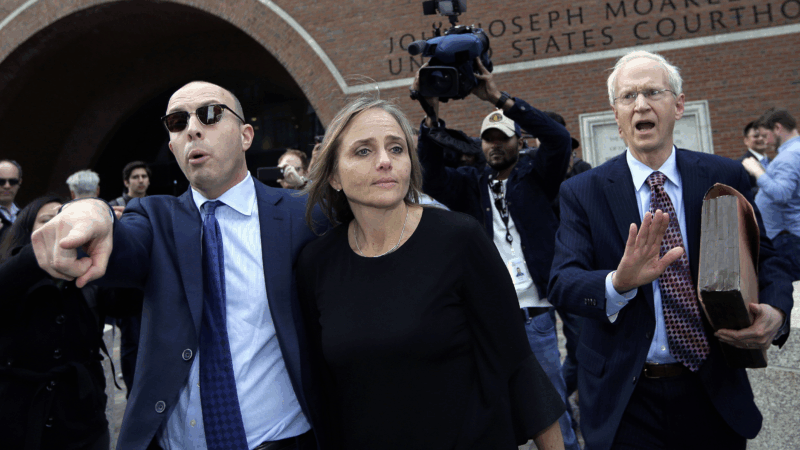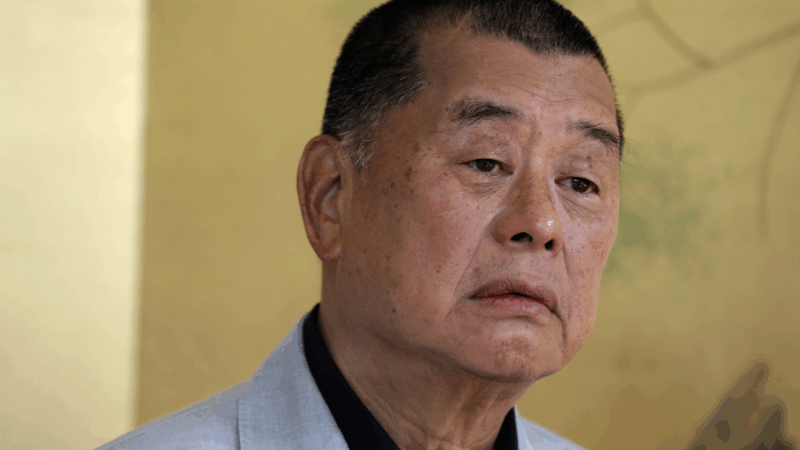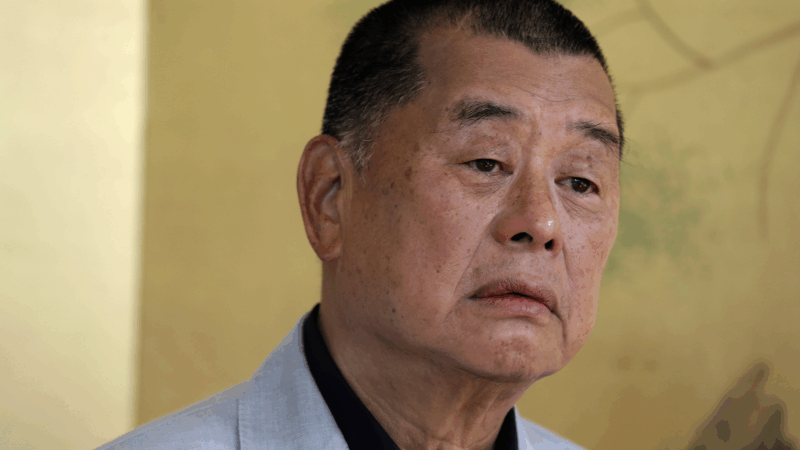Wisconsin judge’s case is rare but not unprecedented. There’s another near Boston
A Wisconsin judge pleaded not guilty Thursday to federal charges that she helped an undocumented immigrant facing misdemeanor battery charges slip out of her courtroom to evade immigration authorities. Milwaukee County Judge Hannah Dugan denies any wrongdoing and is asking for her case to be thrown out.
Bringing criminal charges in a case like this is extremely rare, but a similar case has been unfolding in Massachusetts for more than seven years.
Judge Shelley Joseph was so new to the bench in April 2018 that she brought her mother-in- law and father-in-law to watch as she presided solo for the first time at the Newton District Court. She has said nothing about her cases that morning seemed out of the ordinary, though it would turn out to upend her career.
One year later, Joseph emerged teary-eyed from federal court in Boston, where she was charged with conspiracy and obstruction of justice. Prosecutors say on that April day in the Newton court, she and a defense attorney helped an undocumented immigrant facing drug charges slip out a back door of a courtroom to evade the U.S. Immigration and Customs Enforcement agent who was waiting for him just outside the front door. The charges carried up to 25 years in prison.
A gaggle of reporters awaited Joseph and her lawyer, Thomas Hoopes, outside the Boston court.
“This prosecution is absolutely political,” Hoopes proclaimed. “Shelly Joseph is absolutely innocent.”
But prosecutors insisted otherwise. “This case is about the rule of law,” said then-U.S. Attorney Andrew Lelling. “This is intentional interference with the enforcement of federal law. … We cannot … use our personal views to justify violating the law.”
“I think that Joseph was the canary in the coalmine,” former federal judge Nancy Gertner tells NPR. It was an early sign of what she sees as a pattern of federal overreach that’s getting worse.
“This is a federal government that does not understand there really are two authorities: the state and the federal government,” Gertner says. “The federal government cannot intimidate or commandeer state proceedings to accomplish their will.”
Unlike the case in Wisconsin — where Dugan was charged in less than a week, arrested in court, handcuffed and photographed — prosecutors in Massachusetts took more than a year before they charged Joseph and did so only after it became clear that no other entity, such as the state or any professional or ethics commission, were going to get involved.
“The alleged conduct was serious enough that there had to be some accounting for that, we [couldn’t] do nothing,” recalls Nathaniel Mendell, then-first assistant U.S. attorney. He, too, pushes back on suggestions that the prosecution was politically driven.
“The prospect that a judge took it upon herself to frustrate an arrest — that was stunning to us — it was like, ‘Who does that?’ ” Mendell says. Imagine, he adds, “if you had a judge walking a Jan. 6 defendant out the back of the courtroom. I don’t think people would spend a lot of time trying to figure out if it was a good idea or if that was upholding the rule of law or not.”

Joseph and her attorney declined to comment for this story, but in legal filings, Joseph maintains she knew nothing about any plan to evade the ICE agent. She says the undocumented man’s defense attorney, with whom Joseph is accused of conspiring, falsely accused her so he could get an immunity deal for himself.
Court documents leave a lot open to interpretation.
Late in the day on April 2, 2018, the defense attorney is alleged to have plotted with a court clerk to let his client out through a basement door that led to a parking lot behind the courthouse. That plan depended on the judge sending the defendant back to lockup, even though he had been released from custody.
On a court recording transcription filed by prosecutors, the defense attorney told the judge that ICE was going to pick up his client if he walks out the front door. The judge responded at various points, “ICE is gonna get him?” and “What if we detain him?”
The attorney inquired if they were on the record, and the judge asked the clerk, “Can we go off the record for a moment?” and the court recording was shut off. At that point, the attorney allegedly told Joseph about the plan, and she is alleged to have agreed. When the recording was restarted, less than a minute later, the defense attorney said, “I would ask that he, uh- I believe he has some property downstairs. I’d like to speak with him downstairs with the interpreter if I may.” Judge Joseph responded, “That’s fine, of course.”
Minutes later, the defendant was let out to the parking lot, unbeknownst to the ICE agent who was waiting, as he was instructed by the court to do, in the front lobby.
In later conversations with higher-ups in the court, Judge Joseph adamantly denied she had anything to do with the defendant’s release and that anything she did that may have helped him evade ICE was unintentional. And she said she didn’t realize she was violating rules by turning off the court recorder.
Immediately following her indictment, Joseph was removed from the bench and put on leave without pay. She would later successfully challenge that up to the state Supreme Court, and her pay was reinstated.
But Joseph’s really lucky break came after Joe Biden was elected in 2020, and the U.S. attorney he appointed dropped the charges against her. Instead, Joseph would be investigated by the Massachusetts Commission on Judicial Conduct.
That meant she was allowed to return to the bench, though at a different court. A least for the interim.
Next month, the judicial conduct commission will hold a trial-like proceeding to determine whether Joseph engaged in willful and illegal misconduct and then lied about it. The case then goes to the Supreme Judicial Court, which will decide Joseph’s fate.
“The notion that it was an intentional effort to subvert the federal government is just poppycock,” Gertner says.
Joseph may have made mistakes in court that day, such as turning off the court recorder, but Gertner chalks it up to inexperience, and says this kind of case never should have been charged as a federal crime. That would be the appropriate venue for something like corruption or sexual misconduct, Gertner says, but not for how a judge exercises discretion or “what she’s doing to keep order in her courtroom and to keep the atmosphere free from intimidation.”
“Whatever a judge does within the four corners of her courtroom is her domain,” Gertner says. “If ICE wants to wait for people outside the courthouse, that’s fine. But do they have to be hovering inside? Do they have to arrest a witness or defendant in the middle of trial? The answer is absolutely no. The republic will still stand if ICE respects the state bench and state procedures.”
ICE and the Justice Department did not immediately respond to requests for comment.
But as others see it, if anyone needs to be reigned in, it’s the judges who would treat people differently based on their immigration status.

Jessica Vaughan with the Center for Immigration Studies, which favors immigration limits, sees the Joseph and Dugan cases as “two really shocking expressions of obstruction of legitimate immigration enforcement.”
“[Judges] are supposed to uphold the law, not help people evade it,” she says. “It’s especially galling for the victims to watch a guy be whisked out of the courtroom by a judge who is clearly more interested in protecting an illegal alien than protecting [victims’] right to have their day in court.”
Equally important, Vaughan says, is that courts hinge on the notion of equal justice for all.
“If judges are offering escape hatches, allowing people who are in the country illegally to be treated differently, then we really are creating a double standard that can destroy the public faith in an impartial judiciary system that operates without bias,” she says.
But how exactly state judges should balance their prerogative to run their courtrooms without federal interference and federal officials’ prerogative to enforce immigration law remains ambiguous. As judges and juries are being asked to resolve where the line is, courts are thinking about the same thing.
Transcript:
STEVE INSKEEP, HOST:
A Milwaukee judge was in federal court yesterday as a defendant. Judge Hannah Dugan pleaded not guilty to charges that she helped a person without legal status to slip out of her courtroom to evade immigration authorities. She denies any wrongdoing and wants for her case to be thrown out. It is rare for a judge to be prosecuted like this, but as NPR’s Tovia Smith reports, a similar case has been unfolding in Massachusetts for years.
TOVIA SMITH, BYLINE: Judge Shelley Joseph was so new to the bench in April 2018, she brought her mother and father-in-law to Newton District Court to watch. She said nothing about her cases seemed out of the ordinary that morning, even though it would turn out to be a day that upended her career.
(SOUNDBITE OF ARCHIVED RECORDING)
THOMAS HOOPES: This prosecution is absolutely political. Shelley Joseph is absolutely innocent.
SMITH: That was Defense Attorney Thomas Hoopes and a scrum of reporters with Joseph, leaving federal court the day she was indicted on conspiracy and obstruction of justice charges, carrying up to 25 years in prison. Federal prosecutors say Joseph purposely prevented immigration officials from apprehending an undocumented immigrant facing drug charges in her court. Joseph declined to talk to NPR about what happened that day, but prosecutors say her personal views motivated her to tell U.S. Immigration and Customs Enforcement – or ICE – agents to wait in the court lobby out front so the defendant could slip out the back.
UNIDENTIFIED CLERK: That’s down the stairs, and then out to the back parking lot.
SMITH: In the Newton District Courthouse, a clerk points to the secure backdoor where that defendant was allowed to exit.
So if the public can’t go out that door…
UNIDENTIFIED CLERK: No.
SMITH: …Then ICE wouldn’t have been allowed to chase him down?
UNIDENTIFIED CLERK: No. Absolutely not. It’s lock-up. I don’t even like going down there (laughter).
SMITH: The incident immediately caught the eye of federal prosecutors.
NATHANIEL MENDELL: The prospect that a judge took it upon herself to frustrate an arrest – that was stunning to us. It was like, who does that?
SMITH: Nathaniel Mendell, then first assistant U.S. attorney, says, unlike Wisconsin prosecutors who pounced on Judge Dugan, arresting her within days, his office didn’t bring charges for a year and did so only after it became clear that no state official or ethics board was going to.
MENDELL: The alleged conduct was serious enough that there had to be some accounting for that. We can’t do nothing. I mean, if you had a judge walking a January 6 defendant out the back of the courtroom, I don’t think people would spend a lot of time trying to figure out if that was a good idea or if that was upholding the rule of law or not.
SMITH: Judge Joseph was removed from the bench, but the case took a lucky turn for her after Joe Biden won election in 2020, and the federal criminal charges were dropped. Instead, Joseph would be investigated by Massachusetts Commission on Judicial Conduct. That meant she could return to work, but she could also lose her job again if the commission believes the charges that she engaged in willful and illegal misconduct and then lied about it.
NANCY GERTNER: The notion that this was an intentional effort to subvert the federal government is just poppycock.
SMITH: Former federal judge Nancy Gertner says Joseph may have made rookie mistakes in court that day. Perhaps most notably, turning off the court recorder, which is against court rules, and doing so while speaking to the defendant’s attorney, who she is accused of conspiring with. In legal documents, Joseph maintains she knew nothing about any plan to evade ICE. She says that attorney falsely accused her so he could get an immunity deal for himself. To Gertner, the bigger picture is what she sees as a pattern of federal overreach that undermines states’ authority and courts’ independence and their ability to do their job.
GERTNER: I think that Joseph was the canary in the coal mine because this is a federal government that doesn’t understand that there really are two authorities, and the federal government cannot intimidate or commandeer state proceedings to accomplish their will.
SMITH: ICE and Justice Department officials did not immediately respond to requests for comment. To some, the folks who need to be reined in more than the federal government are any judges who would treat people differently just based on their immigration status. Jessica Vaughan is with the Center for Immigration Studies, which favors immigration limits.
JESSICA VAUGHAN: If judges are offering escape hatches, allowing people who are in the country illegally to be treated differently, then we really are creating a double standard.
SMITH: Judge Joseph will get her day not quite in court, but before the Judicial Commission next month. It’ll proceed much like a trial, and her fate will ultimately be decided by the justices of the Massachusetts Supreme Court.
Tovia Smith, NPR News.
(SOUNDBITE OF EPHILEXIA’S “SUN, PLEASE, EXPLODE”)
Crackdown on dissent after nationwide protests in Iran widens to ensnare reformist figures
Detained Nobel Peace Prize laureate Narges Mohammadi has received another prison sentence of over seven years.
Crackdown on dissent after nationwide protests in Iran widens to ensnare reformist figures
Detained Nobel Peace Prize laureate Narges Mohammadi has received another prison sentence of over seven years.
China critic and former media tycoon Jimmy Lai is sentenced to 20 years in a Hong Kong security case
Jimmy Lai, the pro-democracy former Hong Kong media tycoon and a fierce critic of Beijing, was sentenced on Monday to 20 years in prison in the longest punishment given so far under a China-imposed national security law that has virtually silenced the city's dissent.
China critic and former media tycoon Jimmy Lai is sentenced to 20 years in a Hong Kong security case
Jimmy Lai, the pro-democracy former Hong Kong media tycoon and a fierce critic of Beijing, was sentenced on Monday to 20 years in prison in the longest punishment given so far under a China-imposed national security law that has virtually silenced the city's dissent.
Center-left Socialist candidate wins over populist in Portugal’s presidential runoff
Center-left Socialist candidate António José Seguro recorded a thumping victory over hard-right populist André Ventura in Portugal's runoff presidential election Sunday, according to official results.
Seahawks win Super Bowl title, pounding the Patriots 29-13
Seattle's "Dark Side" defense helped Sam Darnold become the first quarterback in the 2018 draft class to win a Super Bowl, to win the franchise's second title.







